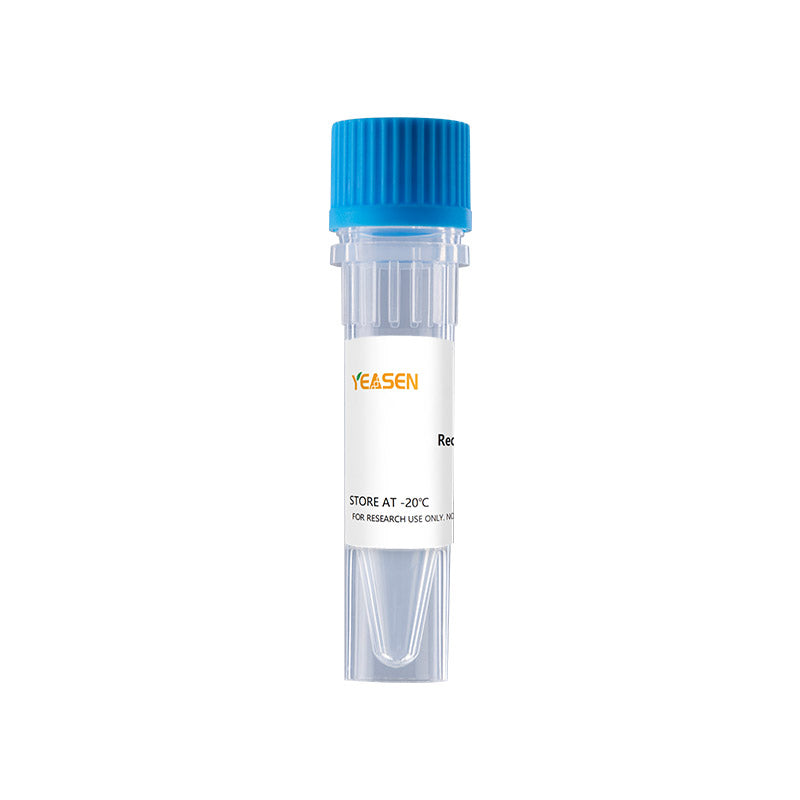Description
Defensins (alpha and beta) are cationic peptides with antimicrobial activity against Gram-negative and Gram-positive bacteria, fungi, and enveloped viruses. They are 2-6 kDa proteins and take important roles in innate immune system. On the basis of their size and pattern of disulfide bonding, mammalian defensins are classified into alpha, beta and theta categories. β-Defensins are expressed on some leukocytes and at epithelial surfaces. They contain a six-cysteine motif that forms three intra-molecular disulfide bonds. Because β-defensins are cationic peptides, they can therefore interact with the membrane of invading microbes, which are negative due to lipopolysaccharides (LPS) and lipoteichoic acid (LTA) found in the cell membrane. Especially, they have higher affinity to the binding site compared to Ca2+ and Mg2+ ions. Furthermore, they can affect the stability of the membrane. Additionally, they are not only have the ability to strengthen the innate immune system but can also enhance the adaptive immune system by chemotaxis of monocytes, T-lymphocytes, dendritic cells and mast cells to the infection site.
Product Properties
|
Synonyms |
BD-3 Protein, DEFB-3 Protein, DEFB103 Protein, DEFB3 Protein, BD-3 Protein, BD3 Protein, BP-3 Protein, BP3 Protein |
|
Accession |
Q9WTL0 |
|
GeneID |
27358 |
|
Source |
E.coli-derived mouse Beta-defensin 3 protein, Lys23-Lys63 |
|
Molecular Weight |
Approximately 4.6 kDa. |
|
AA Sequence |
KKINNPVSCL RKGGRCWNRC IGNTRQIGSC GVPFLKCCKR K |
|
Tag |
None |
|
Physical Appearance |
Sterile Filtered White lyophilized (freeze-dried) powder. |
|
Purity |
> 95 % by SDS-PAGE and HPLC analyses. |
|
Biological Activity |
Fully biologically active when compared to standard. The ED50 as determined by anti-microbial activity against E.coli. is less than 20 μg/ml, corresponding to a specific activity of > 50 IU/mg. |
|
Endotoxin |
< 1.0 EU per 1μg of the protein by the LAL method. |
|
Formulation |
Lyophilized from a 0.2 µm filtered concentrated solution in 2 × PBS, pH 7.4. |
|
Reconstitution |
We recommend that this vial be briefly centrifuged prior to opening to bring the contents to the bottom. Reconstitute in sterile distilled water or aqueous buffer containing 0.1 % BSA to a concentration of 0.1-1.0 mg/mL. Stock solutions should be apportioned into working aliquots and stored at ≤ -20 °C. Further dilutions should be made in appropriate buffered solutions. |
Shipping and Storage
The products are shipped with ice pack and can be stored at -20℃ to -80℃ for 1 year.
Recommend to aliquot the protein into smaller quantities when first used and avoid repeated freeze-thaw cycles.
Cautions
1. Avoid repeated freeze-thaw cycles.
2. For your safety and health, please wear lab coats and disposable gloves for operation.
3. For research use only.
Payment & Security
Your payment information is processed securely. We do not store credit card details nor have access to your credit card information.
Inquiry
You may also like
FAQ
The product is for research purposes only and is not intended for therapeutic or diagnostic use in humans or animals. Products and content are protected by patents, trademarks, and copyrights owned by Yeasen Biotechnology. Trademark symbols indicate the country of origin, not necessarily registration in all regions.
Certain applications may require additional third-party intellectual property rights.
Yeasen is dedicated to ethical science, believing our research should address critical questions while ensuring safety and ethical standards.

